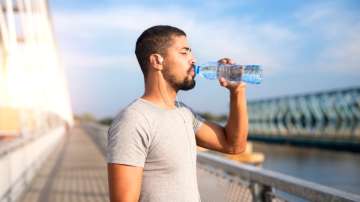It's just the middle of March, and temperatures are already soaring. The sun is scorching during noon and soon humidity will start hitting in the face like a sauna. Come April, and the summer heat is only going to get more intense. In such a scenario experts advise that avoiding excessive water loss and dehydration is essential, especially in the summer months. Hence, it becomes important to maintain water and electrolyte balance through proper hydration. As our water reserves go down, our body automatically sends a signal to the brain making us feel thirsty. This often leads to heatstroke.
Here are some suggestions and precautions that one must keep in mind to protect yourself from heatstroke
- It is crucial to drink plenty of fluids during hot and humid months. Fluids can be in form of plain water, fruit juices, coconut water or the good old nimboo paani or lemonade.
- It is also a wise idea to stay indoors specially during the peak summer afternoons to minimise sweat loss.
- In case of severe dehydration, one must go for Oral Rehydration Salt (ORS) as it contains sodium, glucose, potassium and chloride which helps in maintaining the electrolyte balance in the body, he suggests.
- Also including fruits and vegetables like watermelon, cucumbers, strawberries, melons, lettuce, tomatoes, etc can help you keeping hydrated as they contain high water content.
- Staying away from alcohol, coffee and excessive sugary drinks is a good idea as these make you dehydrated due to their diuretic action.
No matter our best efforts, sometimes life can get the better of us. So pay attention to these tell-tale warnings that can signal an oncoming problem. Signs of heat exhaustion may include: elevated body temperature; cool, clammy skin; goosebumps; fainting, dizziness or weakness; headache; increased sweating; increased thirst; irritability; muscle cramps; and nausea and/or vomiting.
--with agency inputs
Disclaimer: Tips and suggestions mentioned in the article are for general information purposes only and should not be taken as professional medical advice. Please consult a doctor before starting any fitness regime or medical advice.
